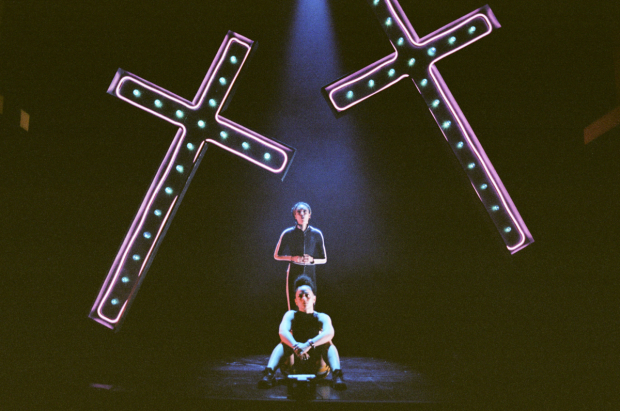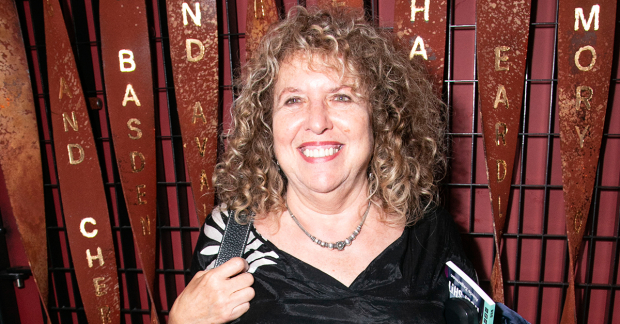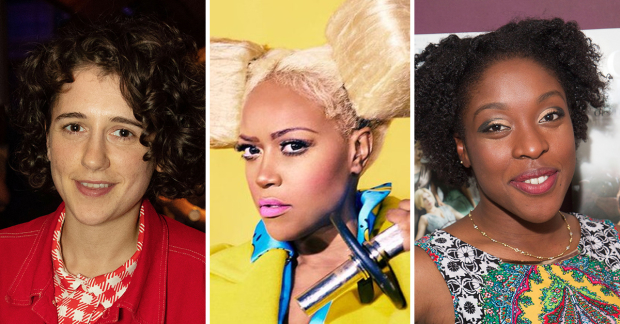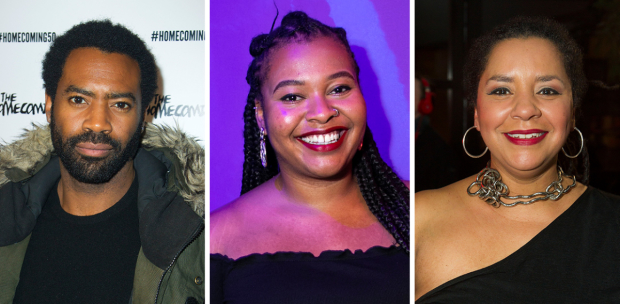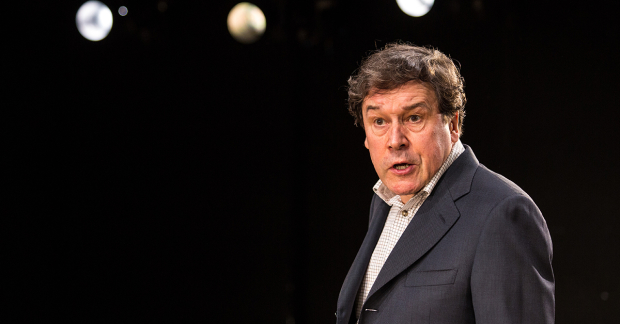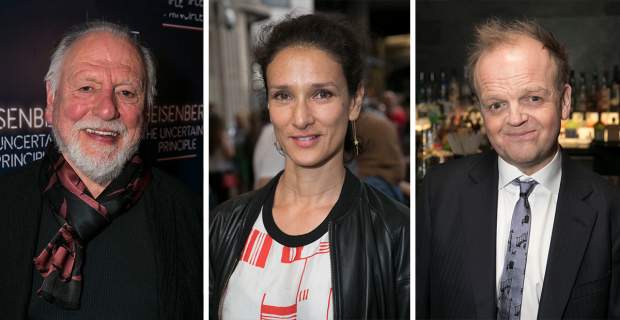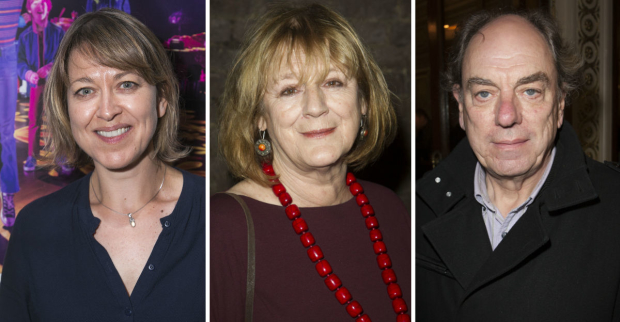Review: ear for eye (Royal Court)
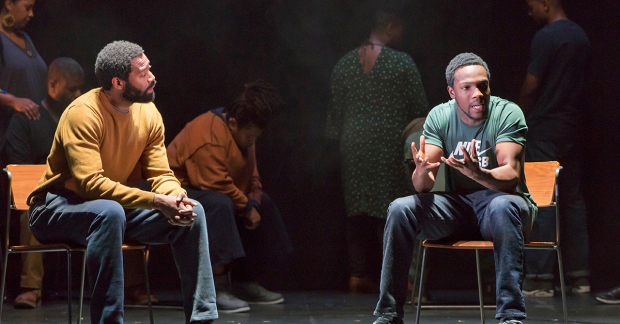
© Stephen Cummiskey
The thrill of seeing this new play by debbie tucker green is partly generated by its passion and partly by its poetry. It is so original, ear and eye-catching that I found I was leaning forward in my seat to catch every word, each beat, each nuance.
It is a large-scale affair, for a 16-strong ensemble, who in tucker green's own, painstaking direction, initially appear as shadows behind the smoky glass of Merle Hensel's set, and then for the opening – and longest part – form tableaux, arranged on chairs, lit like Rembrandt paintings by Paule Constable, listening intently as others give testimony.
The scene shifts over and over again, honing in on conversations between people of colour in the US and the UK as they discuss how to live in a world and a climate that is continuously hostile to them. The language is poetically intense, overlapping words and phrases, but the situations described are terribly real. The first conversation, for example, is between an African American mother and her son (Sarah Quist and Hayden McLean) in which he asks how to hold his hands – and she dismisses every suggestion on the ground that it is belligerent or cheeky or insolent or aggressive.
The exchange is quickfire and impressionistic but it's clear that the mother is fearful for her son and wants him to be safe. Yet she wants him to be confident too. She hasn't brought him up to gaze down at the floor in shame. Later, the same exchange is repeated between a father, mother and son in the UK – and conducted partly in British Sign Language which makes the agony of the son (Jamal Ajala) all the more intense.
The whole of part one is structured poetically, with choric repetitions. Yet the desperation of the situation is clear. In another recurring conversation, a young man (Tosin Cole) repeatedly asks an older man (Nicholas Pinnock who is perhaps a preacher, perhaps a politician, certainly a campaigner) why he shouldn't act – though how is never explained. You have to understand it from the response. "It will lead to a bloodbath." "It won't help."
The thrill of daring to do something is conveyed by another young woman (Shaniqua Okwok) flying around the stage and describing her sensations to her more cautious friend (Seroca Davis). The terror of being arrested just because you supposedly matched a description of someone is conveyed in huge, expansive gestures by Michelle Greenidge and then again, using almost the same words, in painful, unbearable humiliation by Eric Kofi Abrefa.
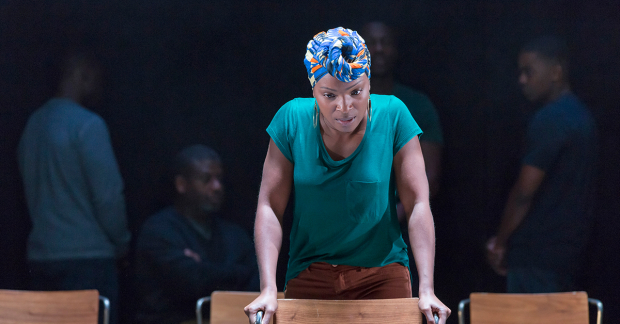
© Stephen Cummiskey
These are not so much dialogues as dances of repression and outrage. (The movement direction by Vicki Manderson is subtle but always there.) Words fly like missiles, beautifully honed, finding their targets, creating a picture of a world where people of colour are constantly suppressed, where every action can have a consequence, and asking how best to react, act and protest in such a climate. The terrible sense of stasis, of fear, is animated by the passion and power of all the protagonists.
Part two is shorter and takes the form of a conversation between two people (lawyers, psychologists in a trial) in which Demetri Goritsas (the only white member of the cast) reveals in a horribly patronising way to a young woman, Lashana Lynch, the shocking hypocrisy of a legal system where the motivations of white killers are regarded and described differently from those of black. It is excruciatingly funny but utterly devastating in its impact.
My only reservation about the evening involves part three, which is a film (directed by tucker green and produced by Fiona Lamptey) in which men, women and children read with deadpan seriousness extracts first from the Jim Crow laws which enforced segregation in the US, and then from the slave codes applied when Britain controlled Jamaica. Their pettiness is as extreme as their cruelty; the list is horrific and it places everything that has gone before in an important historical context.
But while I understand that, and admire tucker green's instinct for formal experimentation, its deadening weight has the effect of lessening the dramatic vitality and momentum that the earlier parts have so brilliantly created. Even with a short and pertinent epilogue, it feels like a dying fall on which to end an insightful, vivid, sobering and unforgettable evening, performed with grace and commitment by every single one of its outstanding cast. It is astonishing.



